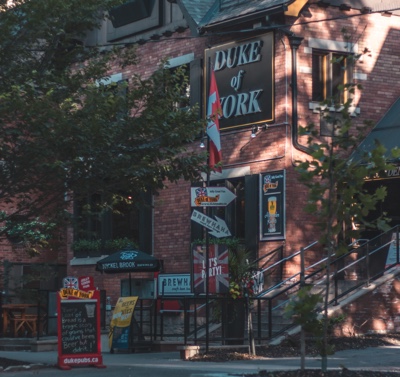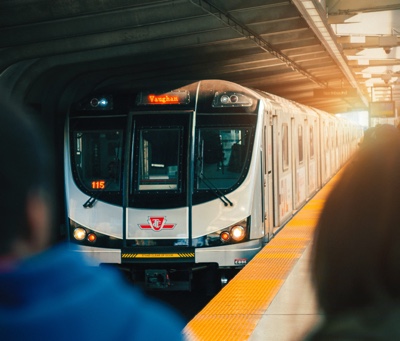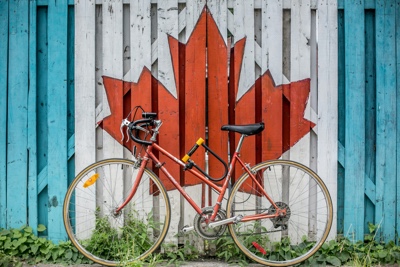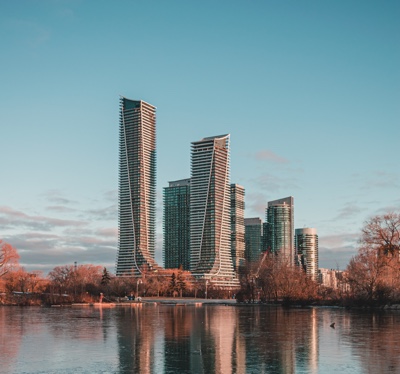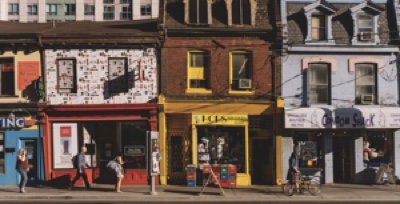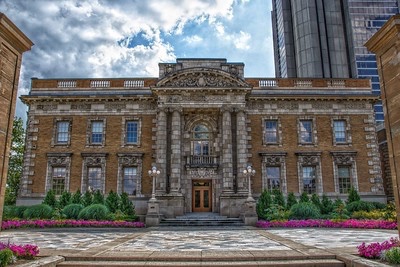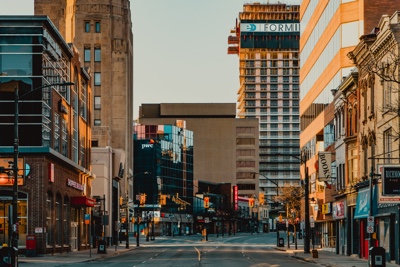How much do you need for a down payment? One of the most important aspects of buying a home is the mortgage down payment. Keep reading to learn more about minimum down payments in Canada, mortgage loan insurance, the impact of your down payment, and how to start saving!
Minimum Down Payment Requirements
A down payment refers to the lump sum that you apply towards the purchase of a house. At closing, the lender will deduct this amount from the purchase price, and the difference is paid with the mortgage.
The minimum down payment requirements vary depending on the value of the home you are buying:
- Less than $500,000 5% of the total purchase price
- $500,000 to $999,999 5% plus 10% for the amount above $500,000
- Over $1,000,000 20% of the total purchase price
So, how much is the down payment on a house?
Let’s assume that the purchase price of your new home is $600,000. To calculate the down payment required, you will take 5% of $500,000 plus 10% of $100,000. This makes your total down payment requirement $35,000.
5% x $500,000 = $25,000
10% x $100,000 = $10,000
Total = $35,000
Mortgage Calculator
Mortgage Loan Insurance
Even if you are not required to produce a down payment of 20%, you will be responsible for paying mortgage loan insurance if you don’t. Similarly, you may also be required to purchase mortgage loan insurance if you have a poor credit history or are self-employed.
Mortgage loan insurance is designed to protect the lender and reduce the risk associated with your default on the loan. If the loan doesn't meet the insurance company standards, or the loan is greater than $1,000,000, insurance coverage may not be available.
As the home buyer, you will usually pay the insurance premiums every month as part of your regular mortgage payment. However, you also have the option to add the premiums to your mortgage as a lump sum in the beginning, but you will end up paying interest on this amount as well.
The premiums can range anywhere from zero point 6% to 4.50%, and the exact value will be based on the size of your down payment. In other words, the greater the down payment you provide, the less you will pay in mortgage insurance premiums. This is because you're considered less risky to the lender by taking out a smaller total loan.
The most popular mortgage insurance provider is the Canada Mortgage and Housing Corporation, or CMHC. You can also work with Genworth Canada or Canada Guaranty Mortgage Insurance Company to obtain your mortgage insurance.
If you live in Manitoba, Ontario, or Québec, an additional provincial sales tax will apply to the mortgage loan insurance premiums.
Impact of your Down Payment Size
Your mortgage down payment size will impact a variety of things when you are purchasing a home. As we mentioned above, it will impact the amount of mortgage insurance you are required to pay. The down payment will also determine the value of the homes you can afford and your monthly mortgage payments.
What Can You Afford?
Regardless of the size of the home you're buying, the minimum down payment requirement is 5%. This benchmark will determine the maximum mortgage that you can afford before even considering your debt-to-income levels.
For example, if you have a down payment of $10,000, the highest home price you can afford is $200,000:
$10,000 ÷ 5% = $200,000
Using the same calculation, you can afford a home valued at $300,000 if you have a down payment of $15,000.
As you can see, the down payment you have has a major impact on what you can afford. Saving just an additional $5,000 allows you to obtain a mortgage valued up to $100,000 more!
Your income and debt levels will also play a role in affordability.
Mortgage Total and Monthly Payments
Since a larger down payment will directly reduce the amount of your total mortgage, your monthly payments will be significantly lower. The lower total mortgage value will also result in paying less interest over the life of the loan.
How Do I Pay for The Down Payment?
There are different options for people when they do not have the cash up-front. A line of credit is a great way for first-time buyers and young adults to build a credit score. Personal loans can also be made from the bank or a family member.
Sometimes homebuyers will put down more money for their down payment than the suggested percentage. The higher the amount you put down, the lower your mortgage payments will be. Over the long run, you may be spending more than you planned with the added insurance and interest costs if your down payment is lower.
Always know your budget and play within it. Build a budget chart before putting that payment down on a house so you know what you will be spending each month on your mortgage and what is left over for other costs.
Ways To Borrow For A Down Payment
In Canada, if you need to borrow for a down payment, as well as your mortgage, you cannot borrow from the same lender. You will need to borrow from a different lender and can do so in form of a personal loan, a line of credit, or charge it to your credit card. Charging it to your credit card is not wise, as it could potentially put you in debt and decrease your credit score that may already be poor.
The most popular choice is a line of credit, which you will pay back over time including an interest charge. The interest charge and your mortgage payments will be higher since you will be considered a high-risk borrower.
Borrowing from a family member is another option if they are willing to help you out. It is best to have written and signed copies of things to fall back on should a problem arise. In 2016, 35% of homebuyers received help with their down payment.
Whether you are taking out a loan, borrowing from a family member, or using your RRSP, make sure you weigh the pros and cons for each situation.
Housing market inside scoop
Down Payment Vs. Deposit
At this point, you may be wondering what the difference is between a down payment on a house and a deposit. Although these may sometimes be used interchangeably, they have very different meanings.
A deposit comes before the down payment and is used to secure the home that you intend to purchase. It shows a good faith commitment to the seller and lets them know that you are serious about buying the home.
There is no standard calculation for a deposit, and it is typically negotiated with the seller’s representative.
How Much Should You Save For A Down Payment?
Depending on the price of your home, the following table will tell you how much you need to save for a down payment. On a $550,000 home, you will need a minimum of $30,000 for your down payment. When you are buying a $1 million home, you will need $200,000 for your down payment.
|
Price Of Home |
Down Payment Amount |
Total |
|
$350,000 |
$17,500 |
$17,500 |
|
$450,000 |
$22,500 |
$22,500 |
|
$550,000 |
$25,000 + 10% of remaining 5,000 |
$30,000 |
|
$850,000 |
$25,000 + 10% of remaining $350,000 |
$60,000 |
|
$1,000,000 |
$200,000 |
$200,000 |
|
$2,500,000 |
$500,000 |
$500,000 |
After budgeting for your down payment, remember you will also have additional costs such as closing costs, a home inspector, etc.
Closing costs will vary in each case depending on the type of property you are buying or the loans you have. Typically, it will range anywhere from 2-5% of the purchase price.
Your real estate agent will make sure you understand all the closing costs involved of course, but some of these will be included:
- Appraisal
- Attorney Fees
- Homeowners’ Insurance
- Property Tax
- Recording Fees
- Transfer Taxes
- and more
Total costs to buy a home
|
Price Of Home |
2-5% Of Closing Costs |
Total (+ down payment) |
|
$350,000 |
$7,000 -$17,500 |
$24,000- $35,000 |
|
$450,000 |
$9,000 - $22,500 |
$31,500 - $45,000 |
|
$550,000 |
$11,000 - $27,500 |
$41,000 - $55,000 |
|
$850,000 |
$17,000 - $42,500 |
$77,000 - $102,500 |
|
$1,000,000 |
$20,000 - $50,000 |
$220,000 - $250,000 |
|
$2,500,000 |
$50,000 - $125,000 |
$550,000 - $625,000 |
Remember these are just estimates are not all closing costs apply to every transaction.
How to Save for a Down Payment
Now that you have a complete understanding of minimum down payments in Canada, it is time to start saving! Here are a few ways that you can save additional funds for a mortgage down payment:
Start Budgeting
Budgeting is one of the most important first steps to take when you decide to purchase a home. Prioritize what's important and determine where you can cut back to save additional funds for your down payment.
Reduce Credit Card Debt
While it may seem counterintuitive to spend money paying or credit card debt when you are trying to save, it will actually save you a lot of money on interest in the long run. Start by paying off debts with the highest interest rates - once you knock those off, you can pay off the smaller debts faster.
Interest works like a snowball effect, so pay the minimum payments on low-interest balances and use your extra funds to pay off those with higher rates.
Use Funds from your RRSP
If you are a first-time home buyer, the government will let you take cash out of your RRSP account, up to $25,000, as long as it is paid back within the next 15 years. If you are buying with your partner and they are also a first-time buyer, they can take out $25,000 as well and you can potentially have a total of $50,000. You are both considered a first-time buyer if you have not owned a home within the last four years prior to your withdrawal. If you can't repay the loan within the designated timeframe, you will owe taxes on the money withdrawn.
Pros of tapping into your RRSP for your down payment:
- $50,000 can be a large 20% down payment, meaning you will have shorter amortization period and lower mortgage payments
- Can be a quick way to get down payment
- Increases your equity right away, especially if down payment is 20%
- Withdrawing money can be tax deductible and you can use money you receive back to pay back RRSP account
- Can set up payments as often as you like (monthly, bi-weekly, etc.)
Cons of tapping into your RRSP for your down payment:
- Added payment on top of mortgage
- Miss years of building interest on your account
- Come retirement time, there may be less money now
- If you miss a payment, the unpaid amount will be fully taxed as income
First-Time Homebuyers Program
When you purchase your first home, you may be eligible for a rebate or incentive program that will help you come up with a down payment. Check if your city has a program available and see if you qualify!
How Does A No Down Payment Mortgage Work?
Do not let the “no down payment” part fool you. There is still money involved that is being put down in order for you to purchase your house, it is just not your personal savings. It works the same way as borrowing for a mortgage, where you are making monthly payments on top of an interest charge, only you are now also borrowing to put a payment down on your house. So now you owe more than just the mortgage loan and could potentially be putting yourself at a higher risk of debt.
The Pros & Cons to A No Down Payment Mortgage
If you are in a situation where you feel like a private mortgage is your only option, make sure you do your research beforehand. Do not rush into something you do not understand. Write down the pros and cons and any questions you have, to consider what is right for you and your financial situation.
Pros of a no down payment mortgage:
- You are putting less money down and have more cash on hand for other expenses
- You can buy and move in more quickly
- May be able to improve credit score
- Stop paying rent and start building equity
- Improve relationship and trust with family member
Cons of a no down payment mortgage:
- Do not have home equity right away
- Interest charge and mortgage payments are higher
- Smaller down payment means longer amortization period
- Having multiple loans can decrease the amount of mortgage loan you are approved for
- Still have to pay other costs (closing costs, legal fees, etc.)
Other Real Estate Resources You May Be Interested In
First Time Home Buyer Incentives and Tips in Canada
Land Transfer Tax in British Columbia
Mortgage Pre-Approval Process in Canada
About Fivewalls
Fivewalls is the leading place to search for a vetted, top real estate agent at no additional cost. We specialize in screening real estate professionals for years of experience, service, transactions and customer satisfaction ratings. Home buyers and sellers can go on Fivewalls to see profiles of top real estate agents in their area and complete due diligence before picking one. For more information please visit Fivewalls.

